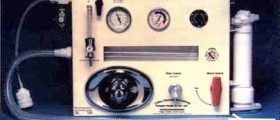
Senna is an herbal medicine and may cure constipation. This alternative medicine can be found under different names such as India Senna, Khartoum Senna, Alexandrian Senna, Cassia Senna and Tinnevelly Senna. However, not all Sennas are allowed to be sold and issued on market, by the FDA. Senna tablets do not replace doctor prescribed medications for constipation because Senna is a herbal supplement. One should be very careful because some herbal supplements can have toxic material or dangerous metals. All herbal compounds needs to be bought from medically confirmed source.
Senna Purposes
There are other purposes of Senna medication. Each bottle of Senna has its use on the label, just like any other medicine. It is not good to use Senna longer that it is prescribed by the doctor. Taken in larger amount, Senna can worsen medical state, so it is not recommended to use them more then one week.
Senna tablets should be taken if patient has a heart disease, often vomiting, stomach pain, nausea, a bowel disorder, ulcerative colitis and Crohn's disease. But in case of allergies and if patient is on some other herbal medication it is no good to take Senna. Also, if woman is pregnant, breastfeeding or want to be pregnant it is not recommended to take Senna.
Children are also not to take Senna. If patient decides to use the medication, it is important to follow doctor’s order: the medicine is to be taken before bed and takes 6 to 12 hours to affect on the movement of a bowel. Any overdose with Senna requires call for help at the Emergency Center, because the medicine can be highly toxic. Taking Senna requires a proper diet and drink limitations, as well. The medicine should be stored at room temperature, on dry, cold and shadow place.
Side Effects of Senna
It is possible for patients to get a number of allergic reactions such as swelling (throat lips, face, and tongue), hard breathing or hives. There are also dangerous side effects like fingers or toes increasing, low level of potassium in the body, constipation getting worse, upper stomach pain, strong diarrhea, bad stomach ache, extreme thirst, increased urination, itching, nausea, loss of appetite, yellowing of the skin or eyes, confusion... And there are light side effects that are not that serious, such as joint pain, no color of urine, mild diarrhea, stomach cramps, bloating or numbness.
There are also side effects classified according to system, which are musculoskeletal side effects, which are finger clubbing, hypersensitivity side effects are occupational feeling to Senna and gastrointestinal side effects, which are duodenal bezoars and esophageal impaction.
And there was a rare occasion in US, of one patient having rhino conjunctivitis and IgE-mediated asthma after taking Senna.

















Your thoughts on this
Loading...